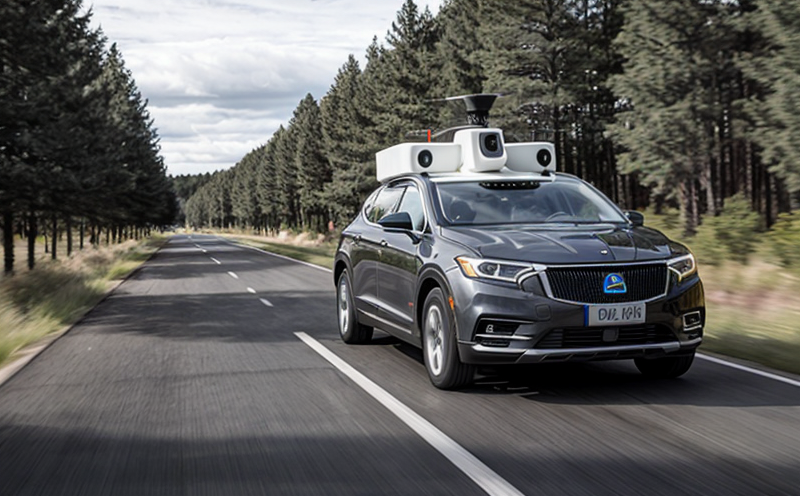ASTM F2573 Power Consumption Analysis in Autonomous Navigation Units
The ASTM F2573 standard addresses the power consumption analysis of autonomous navigation units, ensuring compliance with energy efficiency and environmental considerations. This service is crucial for quality managers, compliance officers, R&D engineers, and procurement teams within robotics and artificial intelligence sectors.
Autonomous systems in navigation are increasingly being used across various industries including logistics, agriculture, defense, and consumer electronics. The power consumption of these units can significantly impact operational costs, environmental sustainability, and overall performance. ASTM F2573 provides a standardized approach to measure and analyze the power consumed by autonomous navigation units under defined operating conditions.
The test involves simulating real-world scenarios where the unit performs its intended tasks. This includes moving through different terrains, interacting with various obstacles, and adhering to predefined routes. The goal is to determine how much power each unit consumes during these activities while ensuring it meets efficiency standards set by the ASTM.
During testing, engineers will configure the environment to replicate typical operating conditions such as temperature ranges, lighting levels, and types of surfaces that the autonomous system might encounter in its operational area. Specimen preparation for this test typically involves calibrating sensors and ensuring all components are functioning correctly before starting power consumption measurements.
The instrumentation used includes advanced power meters capable of capturing minute details about voltage, current draw, and total energy usage over time intervals specified by the ASTM guidelines. Reporting follows strict criteria outlined in the standard document; results include average values calculated from multiple runs conducted under identical conditions.
Applied Standards
| Standard Name | Description |
|---|---|
| ASTM F2573-18 | Standard Practice for Determining Power Consumption of Autonomous Navigation Units. |
Eurolab Advantages
- Pioneering expertise in robotics and AI systems testing.
- State-of-the-art facilities equipped to handle complex autonomous navigation scenarios.
- A team of experienced engineers specializing in power consumption analysis.
- Comprehensive reporting tailored to meet specific client needs.
Environmental and Sustainability Contributions
By accurately measuring and optimizing the power consumption of autonomous navigation units, we contribute positively towards reducing energy waste. This not only lowers operational costs but also helps reduce carbon footprints associated with these systems.
- Reduces electricity bills for clients operating autonomous vehicles or drones.
- Promotes greener technologies by encouraging innovation in efficient power management solutions.
- Encourages manufacturers to design more energy-efficient products, thereby enhancing overall sustainability efforts within the industry.





